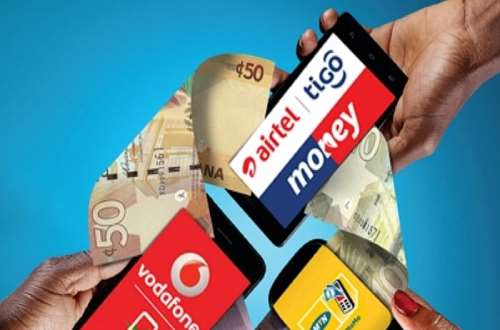E-Levy: 83% of Ghanaians ditch Mobile Money transactions – IMANI Survey
As many as eight Ghanaians out of 10 have abandoned Mobile Money (MoMo) transactions after the implementation of the 1.5% Electronic Transfer Levy (E-Levy), a survey by think tank IMANI Africa has revealed.
Consequently, IMANI Africa has raised fears about the government achieving its revenue target of GHC4.5 billion due to the drastic decline.
The research sought to establish the impact of the 1.5% Tax on Electronic Transactions on Ghanaians and coping strategies adopted since its passage in May this year.
Out of a pool of 1,677 sampled between the period of 31 May to 17 June, the survey showed an 83 percent reduction in volume.
According to the survey, the majority of Ghanaians felt compelled to do so in order to adjust to the limits introduced by the said levy as far as their livelihoods were concerned.
Further analysis of how many people were in support showed that 80.3 per cent were kicked against the 1.5% tax on electronic transactions.

Asked why they are not in support of the E-levy, 32.2% were convinced any money collected would go into a leaking basket.
They further said there would be little accountability for the use of the existing monies collected anyway, and thus their unwillingness to support the agenda.
Another 32% urged the government to rather cut down on wasteful expenditure — cruising in V8s, allowances, conferences, and travel.
Some 23.5% mentioned that Ghanaians were already over-taxed, with many indirect taxes, and thus their reason for not supporting the E-Levy.
However, 5.8 per cent indicated that they are somehow in support, and 1.1 per cent said they are still undecided on what gains the E-levy is expected to generate.
Per the survey, nearly 100% are registered on mobile money, with MTN topping the chart.

The survey was conducted by IMANI Centre for Policy and Education in collaboration with Deutsche Gesellschaft für Internationale Zusammenarbeit (GIZ).
What is the E-levy?
The E-levy is a tax applied on transactions made on electronic or digital platforms. The Minister of Finance announced in Parliament the intention to implement the bill during the presentation of the 2022 Budget.
The tax is one of the measures the government plans to use to increase the country’s tax to GDP ratio from 12 5% in 2021 to 20% by 2024.
The government said it would use the revenue for entrepreneurship, youth employment, digital infrastructure and cyber security, and provision of road infrastructure.
The E Levy is charged at the rate of 1.50% on the following transactions:
•Mobile Money transfers done between accounts on the same electronic money issuer
•Mobile Money transfers from an account on one electronic money issuer to a recipient on another electronic money issuer
•Transfers from bank accounts to mobile money accounts
•Transfers from mobile money accounts to bank accounts
•Bank transfers on an instant pay digital platform or application originating from a bank account belonging to an individual are subject to a threshold to be determined by the Minister of Finance.
However, not all transfers will be affected by the E Levy.
The levy does not apply to the following types of transfers:
• A cumulative transfer of One Hundred Ghana Cedis a day made by the same person
•A transfer between accounts owned by the same person
•A transfer for payment of taxes, fees, and charges on the Ghana.Gov System or any other Government of Ghana designated payment system
•Specified merchant payments
•Transfers between principal, agent, and master agent accounts and
•Electronic clearing of cheques
The Charging Entities are:
- Electronic Money Issuers
- Payment Service Providers
- Banks
- Specialised Deposit-Taking Institutions
- Other Financial Institutions prescribed by Regulations made under the Act.
The levy had divided Parliament, with the majority pushing for approval while the Minority kicked against it.
There was a split vote of 12 for each side at parliament’s finance committee until the chairman cast the decisive vote favouring the proposal.
Parliament degenerated into fisticuffs at a meeting to approve the levy prompting an adjournment to 18 January 2022.
The Chamber turned chaotic as MPs pushed, shoved, and punched each other during the heated exchanges that many observers have since condemned.
This was after the Speaker of Parliament, Alban Bagbin, had left and delegated the First Deputy Speaker, Joe Osei Owusu, to take over proceedings.
The Minority had said it would do all it could to ensure that the bill did not see the light of day, insisting it was not in the best interest of Ghanaians.
But Parliament approved the policy without the participation of NDC MPs who had staged a walkout during the E-levy debate on Tuesday, March 29, 2022.



